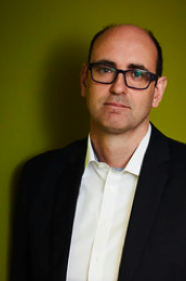How impact investment is making a difference in global health equity

Impact investing is playing a critical and growing role in the development of medicines to treat ‘neglected diseases’ affecting the world’s poorest and most underserved peoples. These medicines would not otherwise be developed by the pharmaceutical industry, which is primarily driven by financial returns. Here, Mark Sullivan AO, founder and managing director of Medicines Development for Global Health, an Australian biopharmaceutical not-for-profit, describes how this finance model is supporting the development of Moxidectin – a potential gamechanger for the WHO’s roadmap to ending river blindness by 2030.
Not every disease in our society has a cure, but we have come to expect that thousands of health researchers will be working hard to improve the management of diseases that our family, friends, colleagues or ourselves might encounter. We take comfort in knowing that a commitment exists to develop new medicines to reduce the impact of a disease or, in the best scenario, eliminate it altogether.
The process of developing new medicines is long, high-risk and expensive, but those efforts can change lives: Hepatitis C, once a slow, insidious death sentence is now curable. Diabetes is better managed with monitoring devices and medicines. Breast cancer now has a more than 90% five-year survival rate. CAR T-cell therapies are futuristic personalised medicines at the absolute forefront of science, resulting in survival rates in leukaemia never seen before. We live in extraordinary times.
The health needs of the community influence – but are not the sole driver of – research and development leading to new medicines. Developing medicines is also predicated on a return on investment through sales of a successfully developed product. Let’s be crystal clear on this: there is no alternative mechanism to develop new medicines. There is an absolute reliance on industry’s involvement and, naturally, industry will want to see that they can make a return on investment, which means there must be a market. When this works, it works brilliantly. But when the market is weak or non-existent, it is a problem.
So, what happens when diseases affect those who cannot afford to pay? Research (the least expensive part of the process) is constrained, the more costly development stage is moribund, and the supply of novel medicines dries up. A perfect illustration of this problem sits with the more than 1.7 billion people (20% of the world’s population) who suffer from one or more of the world’s ‘neglected tropical diseases’.
These diseases disproportionately affect the world’s poorest and most underserved people, especially women and children. They cause severe sickness, disfigurement, cognitive and growth impairment, permanent blindness, isolation and even death. Any one of these diseases would be deemed unacceptable if they occurred in wealthier countries but when there is no market, we fail to deliver. Indeed, of the approximately 600 new medicines registered in the last 15 years, only a handful were for these diseases.
Medicines Development for Global Health (MDGH) exists precisely to address the market failure. We are a unique not-for-profit biopharmaceutical organisation headquartered in Australia, and our vision is “the elimination of neglected diseases to advance global health equity”. We are funded via grants, awards, philanthropic gifts and impact investment. The story may seem complex, but it is simple in reality: MDGH applies its development expertise acquired in the pharmaceutical sector to medicines that address neglected diseases. The clinical need, not the market, drives what we work on.
Financing our work is the challenge because it is expensive. A simple clinical trial costs us approximately US$2M and a batch of drugs costs US$150,000. MDGH is developing two medicines, moxidectin and dovramilast, for the treatment of up to seven neglected tropical diseases. MDGH has licensed its medicines from high pedigree pharmaceutical companies, ensuring the potential of these medicines is not lost to patients in underserved communities.

Impact investment is central to MDGH’s funding model. For example, when taking on the sponsorship of moxidectin in 2014, we leveraged the potential value of the US Food and Drug Administration (FDA) priority review voucher (PRV) to obtain impact investment from the New York-based Global Health Investment Fund (GHIF) and Australian impact investors. The PRV permits an expedited review of any new medicine and is a tradeable item worth approximately US$100M. MDGH raised money against this potential asset and then, when it was successfully awarded a PRV, sold it to Novo Nordisk. The funds repaid the investors, and MDGH is now using the remainder of those funds to support ongoing work.
Moxidectin is the first new treatment for river blindness (onchocerciasis) in 30 years, a devastating, disfiguring and stigmatising disease caused by a worm parasite spread by the bite of the black fly. Symptoms include intense itching, skin depigmentation and permanent blindness. It threatens more than 200 million people, in some of the poorest regions of sub-Saharan Africa, with at least 20 million people living with active infection. The health, social and economic consequences of the disease are devastating.
It is a disease of global importance and is one of the neglected diseases listed for elimination in the World Health Organization’s (WHO) Ending the neglect to attain the Sustainable Development Goals: A road map for neglected tropical diseases 2021-2030.
MDGH is committed to developing and delivering moxidectin for the treatment of river blindness. Since receiving FDA approval in 2018, we have been working through our own funding with the support of the European and Developing Countries Clinical Trials Partnership (EDCTP) and the Bill and Melinda Gates Foundation to conduct some of the additional work required by the WHO to include moxidectin in their treatment guidelines for river blindness. Our work indicates that moxidectin is significantly superior to ivermectin (current standard of care) and has the potential to act as an effective tool in the reduction, if not elimination, of disease transmission, according to recently published modelling (see endnote).
Moxidectin is now being developed for other neglected diseases as well as the dual market diseases, scabies and headlice. We are developing dovramilast to treat tuberculosis and leprosy type 2 reaction. In leprosy, new treatments are urgently needed to replace thalidomide and/or steroids, both of which have serious side-effects. Again, with an important initial impact investment commitment, we were able to investigate and understand the potential for the development of dovramilast for leprosy type 2 reaction through to FDA approval. We hope to leverage the potential value of a second PRV to attract additional impact investment.
The opportunity for investors in Australia to make a truly global impact in health is rare. But at MDGH, we’ve created a novel model that delinks the cost and risk of development from the price of the drug to the patient for important diseases that affect hundreds of millions of people. We have big plans to further deploy our world-class expertise and offer impactful investment opportunities to investors who want to make a difference to the problem of global health inequity.
Endnote: ‘Can mass drug administration of moxidectin accelerate onchocerciasis elimination in Africa?’, Kura, K et al. Philosophical Transactions of the Royal Society B. 2023